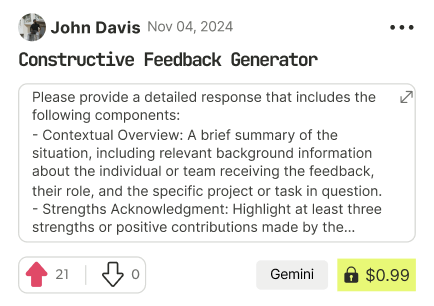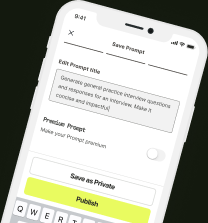prompt mine App
Find, Create & Share AI Magic
Comprehensive Recovery Plan for Rugby Athletes
Create a tailored recovery plan for a rugby athlete following a competitive match or event. This plan will focus on immediate post-match actions, recovery nutrition, injury prevention, sleep and rest optimization, and performance analysis to aid in the athlete's physical recovery and future performance.
Specific Sport: Rugby
Objective: Design a comprehensive recovery plan to aid a rugby athlete in physical recovery and preparation for future matches or events.
Immediate Post-Match Actions (0-60 minutes):
1. Hydration: Consume 500-700ml of water or sports drink within 30 minutes of the match, and continue hydrating throughout the day.
2. Cooldown Stretches: Perform 10-15 minutes of dynamic stretches, focusing on major muscle groups such as the hamstrings, quadriceps, and hip flexors.
3. Compression Therapy: Wear compression garments or sleeves to aid in blood flow and reduce muscle soreness.
Recovery Nutrition (0-24 hours):
1. Post-Match Meal (within 30-60 minutes): Consume a balanced meal containing carbohydrates (1-2 grams per kilogram of body weight) and protein (15-20 grams) to replenish glycogen stores and aid muscle repair.
2. Snacks: Eat snacks every 2-3 hours, consisting of a mix of carbohydrates and protein (e.g., fruit and nuts, energy bars, or yogurt with honey).
3. Electrolytes: Incorporate electrolyte-rich foods or supplements, such as bananas (potassium), dates (potassium), or coconut water (sodium, potassium), to replenish lost electrolytes.
Injury Prevention (0-24 hours):
1. Foam Rolling (within 2-3 hours): Use a foam roller to self-massage major muscle groups, focusing on areas of high soreness.
2. Icing (within 2-3 hours): Apply ice packs to areas of high soreness or inflammation for 15-20 minutes, with a 30-minute break between applications.
3. Massage Therapy (within 24 hours): Schedule a massage to aid in reducing muscle soreness and promoting relaxation.
Sleep and Rest Optimization (0-72 hours):
1. Sleep Schedule: Prioritize 7-9 hours of sleep each night, establishing a consistent sleep schedule to aid in physical recovery.
2. Rest Days: Incorporate 1-2 rest days within the week, allowing the body time to recover and rebuild.
3. Active Recovery: Engage in low-intensity activities, such as yoga or light cardio, to aid in blood flow and relaxation.
Performance Analysis (0-24 hours):
1. Review Post-Match Data: Analyze data from wearable devices, such as GPS tracking or heart rate monitors, to assess physical stress and identify areas for improvement.
2. Adjust Future Training: Use post-match data to inform future training adjustments, focusing on specific areas of physical stress or weakness.
By following this comprehensive recovery plan, a rugby athlete can optimize their physical recovery, reduce muscle soreness and inflammation, and prepare for future matches or events.

Find Powerful AI Prompts
Discover, create, and customize prompts with different models, from ChatGPT to Gemini in seconds

Simple Yet Powerful
Start with an idea and use expert prompts to bring your vision to life!

